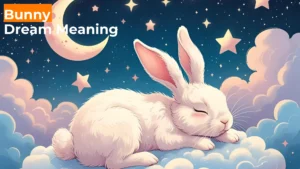I still remember the first time someone asked me how I was doing, and I answered, half-jokingly, “Living the dream.” They laughed, and so did I, but later that night I found myself thinking—what does living the dream really mean? Is it about being genuinely happy, or is it just sarcasm to cover up struggles? Over time, I noticed that this phrase kept coming up in conversations, in songs, in movies, and even in my own dreams.
That curiosity pushed me to explore its layers: cultural roots, translations, and even how people respond to it. In this article, I’ll share my reflections and discoveries with you, guiding you through the many shades of living the dream meaning—from lighthearted jokes to deeper life philosophies.
Historical Background
When I looked back, I discovered that the phrase living the dream first started becoming popular in the late 20th century, especially in Western culture. Originally, it was used in a genuine sense: to describe someone who had achieved success, wealth, or happiness. I noticed how tied it was to the “American Dream”—the idea that hard work leads to prosperity and fulfillment.
But over the years, I felt the meaning shift. People began to use it ironically. When someone said they were living the dream while stuck in traffic or grinding through a tough job, it wasn’t about joy—it was about coping with reality. To me, this historical shift showed how language evolves, just like how dreams themselves can change depending on the dreamer’s mood.
Cultural and Religious Perspectives
In different cultures, I noticed the phrase connects to unique values. For example, in the West, living the dream ties back to personal success and independence. In Eastern traditions, however, living a dreamlike life often means spiritual peace or detachment from material stress.
When I reflected on religious perspectives, I discovered that Christianity sometimes sees dreams as blessings or visions of divine favor—so living the dream could mean living in alignment with God’s will. In Buddhism, I noticed how life itself is described as a dreamlike illusion; here, living the dream might mean accepting life’s fleeting, impermanent nature. Personally, I felt comforted by these perspectives, as they reminded me that “the dream” is not only material success—it can also mean spiritual fulfillment.
Living the Dream Meaning Sarcastic
The more I listened to people, the more I noticed how sarcasm plays a big role in this phrase. Someone might say, “Oh, I’m working overtime on a Saturday—living the dream!” That sting of irony reveals the gap between what people hope for and what they actually experience.
I discovered that sarcasm here works almost like a coping tool. By saying it sarcastically, we laugh at our own struggles. I’ve caught myself doing the same, and I felt it was my way of admitting things aren’t perfect—but I’m pushing through. So yes, sometimes living the dream meaning is less about joy and more about surviving with humor.
Living the Dream Meaning in Urdu
When I looked into Urdu, I found that the phrase translates roughly as “khwab ki zindagi jeena” (خواب کی زندگی جینا). I noticed that in Urdu culture, dreams are often tied to hopes, ambitions, and poetry. So when someone says living the dream in Urdu, it carries a slightly romantic tone—like truly living in the world of your aspirations.
Personally, I felt that the Urdu translation adds softness and depth. It’s not just about sarcasm or ambition; it’s about stepping into a poetic, almost soulful state of life.
How Do You Respond When Someone Says Living the Dream?
I discovered that responses depend on the tone. If someone says it sincerely, I usually reply with encouragement—“That’s amazing, I’m happy for you.” But when it’s sarcastic, I’ve noticed that people often respond with humor, like “Same here” or “Hang in there.”
Over time, I felt that responding to this phrase is less about words and more about empathy. If someone uses it to mask stress, I try to connect. If they’re genuinely happy, I celebrate with them. That’s the beauty of communication—it carries both surface meaning and hidden emotions.
Living the Dream Quotes
As I explored, I came across quotes tied to the phrase. Some were inspiring, like “Living the dream is not about wealth, but about gratitude for what you already have.” Others were sarcastic, poking fun at life’s struggles.
I noticed how these quotes work almost like mirrors. When I’m in a positive space, I feel inspired by the uplifting ones. But when I’m tired, the sarcastic ones make me laugh. Both sides remind me that dream meaning depends on our state of mind.
Living the Dream in a Sentence
I started collecting examples of how people use it in sentences. Here are a few I noticed:
- “I finally moved to the city I always wanted—living the dream.”
- “I’m cleaning spilled coffee off my laptop at 7 a.m.—living the dream.”
- “With my family around me, I truly feel like I’m living the dream.”
Each one felt different. I discovered that the same phrase can sound joyful, ironic, or bittersweet depending on the situation.
Living the Dream Meaning in English
In plain English, the phrase means enjoying life to the fullest, often because you’re experiencing what you once wished for. But I noticed that in daily speech, its meaning shifts. Sometimes it’s about genuine happiness, other times it’s about laughing through frustration.
Personally, I felt that this flexibility is what makes the phrase so relatable. Just like dreams themselves, it changes meaning depending on how you look at it.
Living the Dream Urban Dictionary
When I checked Urban Dictionary, I discovered that most entries lean toward sarcasm. People often define it as “suffering through life while pretending it’s great.” I noticed that this humorous take has made the phrase popular online, especially in memes.
But I also saw genuine entries, where people described living the dream as finally reaching personal goals. I felt like the internet perfectly captures the duality of this phrase—half hope, half humor.
Living the Dream Meaning in Bengali
When I explored Bengali, I found the phrase translates to “স্বপ্নের জীবন যাপন” (swapner jibon japon). I noticed it carries a deeply emotional tone, connected to aspirations and happiness. In Bengali culture, dreams often relate to artistic expression, poetry, and deep emotion.
I felt that saying living the dream in Bengali sounded almost musical, as though the phrase was celebrating not just achievements but also the beauty of living itself.
Living the Life Meaning
I discovered that living the life and living the dream are close cousins. While living the dream often points to achieving something you once hoped for, living the life tends to describe simply enjoying the present moment.
When I reflected, I noticed that living the life feels more grounded—like enjoying coffee on a sunny morning. Living the dream feels more ambitious—like achieving a goal or career milestone. Personally, I felt both phrases remind me to balance gratitude with ambition.
Living the Dream Meaning Quotes
I also gathered quotes that specifically reflect the dream meaning behind the phrase. One I loved said: “Living the dream is not about perfection, but about progress and peace.” Another one read: “Sometimes living the dream is just surviving the day.”
I discovered that these quotes capture both ends of the spectrum: the joy of fulfillment and the honesty of struggle. I felt inspired knowing that both experiences are valid—because life, like dreams, is complex.
Real-Life Dream Experiences
After reflecting on the phrase so much, I noticed it started popping up in my own dreams. Once, I dreamed I was living in a seaside cottage, writing freely—that felt like living my dream. Another time, I dreamed of being stuck in an endless office meeting, and even there, the sarcastic side of the phrase showed up.
I discovered that our subconscious plays with both meanings—sometimes offering dreams of joy, sometimes reflecting our daily struggles. Personally, I felt this showed how living the dream is not just a phrase, but also a reflection of our inner states.
FAQs
Q1: What is the true dream meaning of “living the dream”?
It often means achieving happiness, success, or goals—but it can also be sarcastic, depending on tone.
Q2: Is “living the dream” always sarcastic?
No. It started as a sincere phrase, though many people now use it ironically.
Q3: How do you say “living the dream” in Urdu?
It’s translated as “khwab ki zindagi jeena” (خواب کی زندگی جینا).
Q4: What’s the difference between living the life and living the dream?
Living the life means enjoying the present, while living the dream often means fulfilling long-term goals or wishes.
Q5: Can dreams at night influence this phrase?
Yes. Many people, including myself, connect the phrase with their real-life dreams, making it both literal and metaphorical.
Conclusion
As I wrap up my reflections, I realize that living the dream is more than just a casual phrase. For some, it’s genuine joy and success. For others, it’s sarcasm, a way to survive tough days with humor. And in dreams themselves, it can appear as both inspiration and frustration.
I felt that exploring its history, translations, and cultural shades showed me that the dream meaning of this phrase is fluid. Like dreams, it shifts depending on how we feel. And maybe that’s why it’s so powerful—it reminds us that life itself can be both serious and playful, both hopeful and ironic. At the end of the day, living the dream might just mean living with awareness, humor, and gratitude.


